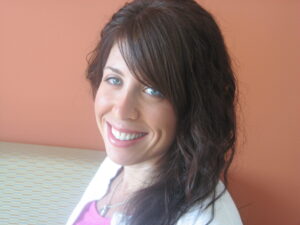Current Status
Price
Get Started

Private course site for Newport Healthcare employees.
Course Overview:
- Course contains 6 interactive pre-recorded lectures where ABFT treatment developers, Dr. Guy Diamond and Dr. Suzanne Levy, provide an overview of the model including theoretical foundation and clinical strategies of ABFT. Faculty review how attachment theory, emotional regulation and trauma resolution inform the delivery of this experiential treatment approach. They also review the goals and structure of the five treatment tasks that provide a road map for delivering this interpersonally focused psychotherapy effectively and rapidly.
- Course contains 7 recorded excerpts from demonstrations of ABFT therapy sessions illustrating core components of each task. Interactive technology is used to highlight essential ABFT principles and strategies demonstrated in the therapy recordings.
- Course takes approximately 8 hours to complete. For Newport employees, we recommend splitting it up over several work days, rather than trying to complete it all in one day.
- Participants will receive a Trainee Manual including the slides for the 6 lectures, FAQs about ABFT, and an overview of the ABFT training process.
- Participants who complete this course are eligible to attend Part 2 of the live ABFT Introductory Workshop. Completion of this course along with Part 2 of the live workshop equates to the full ABFT Level 1 training.
- CEs are available for APA/ASWB – please follow the evaluation instructions after completing the course in order to request CEs processed by Newport.
Course Objectives:
- Explain the theoretical foundation of ABFT.
- Discuss the empirical support for ABFT.
- Describe the five treatment task structure of the model.
- Explain how to organize therapy around interpersonal growth rather than behavioral management.
- Identify the strategies used in the five treatment tasks.

Guy Diamond, PhD
Guy Diamond, Ph.D., is Professor Emeritus at the University of Pennsylvania School of Medicine and formerly was Associate Professor at Drexel University in the College of Nursing and Health Professions. His primary work has been in the area of youth suicide prevention and treatment research. On the prevention side, he has created a program focused on training, screening and triage to be implemented in non-behavioral health settings. On the treatment side, he has focused on the development and testing of attachment-based family therapy (ABFT), especially for teens struggling with depression and suicide. ABFT has now been applied to children and young adults, LGBTQ youth and adults, and adopted in clinics all over the world where it is used as a transdiagnostic approach to patient mental health and ruptures in family attachment.

Suzanne Levy, PhD
Suzanne Levy, PhD is an internationally renowned licensed clinical psychologist and co-developer of ABFT. Previously she was the Executive Director of Strategic Initiatives and Training of the ABFT Training Program at Drexel University’s College of Nursing and Health Professions. Since 2007, Dr. Levy has been conducting ABFT training workshops and supervision for therapists nationally and internationally. She has presented regionally, nationally, and internationally on ABFT, emotion coaching, child and adolescent therapies, resilience, adolescent depression, adolescent development, and adolescent substance use.
This program is being offered for 8 contact hours of continuing education.

This training is co-sponsored by US Journal Training.
US Journal Training is approved by the American Psychological Association (APA) to sponsor Continuing Education for psychologists. US Journal Training maintains responsibility for this program and its content.
U.S. Journal Training #1143 is approved to offer social work continuing education by the Association of Social Work Boards (ASWB) Approved Continuing Education (ACE) Program. Organizations, not individual courses, are approved as ACE providers. State and provincial regulatory boards have the final authority to determine whether an individual course may be accepted for continuing education credit. U.S. Journal Training maintains responsibility for the program. ACE approval period: 12/5/22-12/5/25.
What is ABFT?
Attachment-Based Family Therapy (ABFT) is a manualized, empirically supported family therapy model specifically designed to target family and individual processes associated with adolescent suicide and depression. ABFT emerges from interpersonal theories that suggest adolescent depression and suicide can be precipitated, exacerbated or buffered against by the quality of interpersonal relationships in families. It is a trust-based, emotion-focused psychotherapy model that aims to repair interpersonal ruptures and rebuild an emotionally protective, secure-based parent–child relationship. It is used worldwide in hospitals, clinics, and private practices. ABFT was included in SAMHSA’s National Registry of Evidence-based Programs and Practices (NREPP) and is on the NREPP Web site. Currently, ABFT is listed in the Substance Abuse and Mental Health Services Administration (SAMHSA): Evidence-based resource guide for SI, SH, SA. ABFT is also rated as a program with “Promising Research Evidence” for adolescent depression by the California Evidenced-Based Clearinghouse for Child Welfare (CEBC). Finally, ABFT is listed in the Swedish Guidelines for treatment of depression and is a CYP IAPT recommended evidenced based treatment in England.
What is a self-paced course?
A self-paced course can be accessed at any time from your computer. It is flexible, allowing for you to complete the course at your own speed (rather than meeting at fixed times set by an instructor).
Are there any technology requirements for the course?
We recommend accessing the course from a computer. It can also be accessed from mobile devices, however, a computer is preferable.
Do the course videos have subtitles?
Yes, all course videos contain both audio narration (in English) and optional English subtitles.
I’ve completed the Fundamentals of ABFT Online Self-Paced Course and I want to continue my training in ABFT. What is the next step?
The next step in ABFT training is to attend Part 2 of the live ABFT Introductory Workshop, which provides a more in-depth look at the procedures and processes involved in facilitating the therapy through lecture, video tape review, case discussion, and role-play. After that, you are eligible to attend ABFT Supervision and the ABFT Advanced Workshop.
